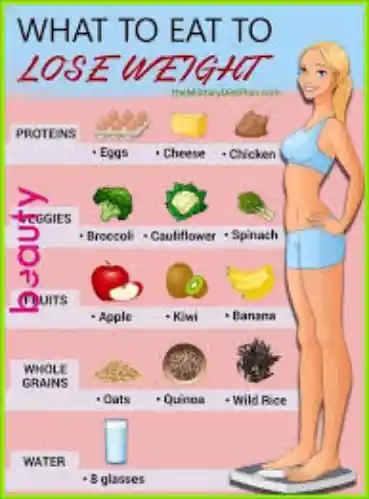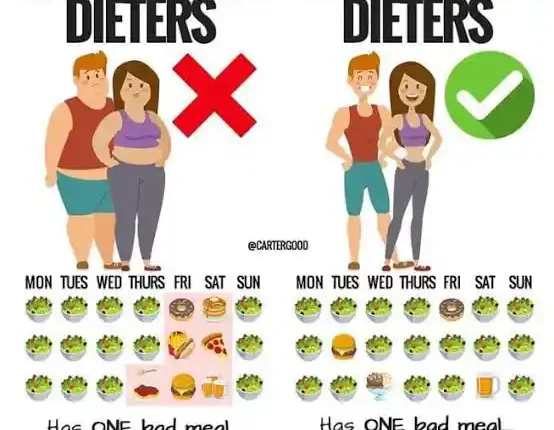Sustainable Lifestyle Changes for Natural Weight Loss
- Advertisement -
Losing weight is often associated with rigorous exercise routines and strict diets, but it doesn’t always have to be that way. By focusing on sustainable lifestyle changes, balanced nutrition, and gentle movement, you can achieve gradual and long-lasting weight loss without resorting to extreme measures.
While regular physical activity is beneficial for overall health and can support weight management, this article highlights alternative strategies for those looking to shed pounds naturally. It’s essential to approach weight loss with realistic expectations, understanding that results take time, consistency, and effort. The tips provided here are rooted in science and focus on practical, evidence-based methods to help you achieve your goals.
The Role of Sustainable Lifestyle Changes in Weight Loss
Weight loss begins with creating a balance between your body’s energy intake (calories consumed) and energy expenditure (calories burned). Sustainable lifestyle changes such as better portion control, improved hydration, and mindful eating can contribute significantly to creating a calorie deficit without the need for drastic exercise or dieting.
- Advertisement -
Focusing on long-term habits rather than quick fixes ensures that the weight you lose stays off, helping you maintain a healthy lifestyle.
1. Embrace Balanced Nutrition
A balanced diet is the foundation of natural weight loss. It provides your body with the nutrients it needs to function properly while helping you manage your calorie intake.
Key Principles of Balanced Nutrition:
- Include All Food Groups: Incorporate fruits, vegetables, whole grains, lean proteins, and healthy fats into your meals.
- Avoid Highly Processed Foods: Reduce consumption of sugary snacks, fried foods, and processed meals.
- Focus on Nutrient Density: Choose foods that are rich in vitamins and minerals but low in calories, such as leafy greens, berries, and legumes.
Example Balanced Meal:
| Meal Component | Example |
|---|---|
| Protein | Grilled chicken or lentils |
| Vegetables | Steamed broccoli and carrots |
| Whole Grains | Quinoa or brown rice |
| Healthy Fats | Avocado slices or a drizzle of olive oil |
- Advertisement -
2. Practice Mindful Eating
Mindful eating involves being fully present during meals, paying attention to your hunger cues, and savoring your food. This practice not only enhances your relationship with food but also prevents overeating.
Steps to Practice Mindful Eating:
- Eat Slowly: Take small bites and chew thoroughly.
- Eliminate Distractions: Avoid watching TV or using your phone during meals.
- Focus on the Experience: Notice the flavors, textures, and aromas of your food.
- Stop When Satisfied: Learn to recognize when you’re no longer hungry and resist the urge to finish everything on your plate.
Mindful eating has been shown to improve portion control and reduce calorie intake over time.

3. Hydration: The Unsung Hero of Weight Loss
Staying hydrated is a simple yet effective way to support natural weight loss. Water plays a crucial role in metabolism, digestion, and appetite regulation.
- Advertisement -
Hydration Tips:
- Drink a glass of water before meals to reduce hunger and prevent overeating.
- Replace high-calorie beverages like soda or juice with water, herbal tea, or infused water.
- Keep a reusable water bottle with you to ensure consistent hydration throughout the day.
Scientific Insight:
Studies have shown that drinking water before meals can reduce calorie consumption by up to 13%, making it a helpful strategy for natural weight loss.
4. Incorporate Gentle Movement
While exercise is not mandatory for weight loss, incorporating gentle movement into your daily routine can improve your overall health and support weight management. Activities like walking, stretching, or yoga are low-impact ways to stay active.
Benefits of Gentle Movement:
- Enhances metabolism and calorie burning.
- Reduces stress and promotes better sleep.
- Improves flexibility and joint health.
Easy Ways to Add Movement:
- Take short walks after meals to aid digestion.
- Use the stairs instead of the elevator.
- Practice yoga or gentle stretching for 10–15 minutes daily.
Regular physical activity, even in small doses, contributes to long-term weight management and overall well-being.
5. Set Realistic Expectations
Weight loss is a gradual process that requires patience and persistence. Unrealistic expectations can lead to frustration and make it harder to stay motivated.
What to Expect:
- A safe and sustainable rate of weight loss is 1–2 pounds per week.
- Initial results may be more noticeable as your body adjusts to new habits.
- Long-term changes, such as improved energy levels and better sleep, are equally valuable indicators of progress.
Celebrate small victories, such as choosing healthier snacks or drinking more water, as these are stepping stones to larger goals.
- Advertisement -
6. Address Emotional Eating
Emotional eating, or eating in response to stress, boredom, or other emotions, can hinder weight loss efforts. Recognizing and addressing this behavior is essential.
Strategies to Manage Emotional Eating:
- Identify Triggers: Keep a journal to track situations that lead to emotional eating.
- Find Alternatives: Replace eating with other stress-relief activities, such as reading, meditating, or going for a walk.
- Seek Support: Talk to a trusted friend or therapist for guidance.
7. Optimize Sleep and Stress Management
Both sleep and stress have a significant impact on weight management. Poor sleep disrupts hormones that regulate hunger, while chronic stress can lead to overeating and weight gain.
Tips for Better Sleep:
- Stick to a consistent sleep schedule.
- Create a calming bedtime routine.
- Avoid caffeine and heavy meals before bed.
Stress-Reduction Techniques:
- Practice meditation or deep breathing exercises.
- Engage in hobbies you enjoy.
- Spend time outdoors to reconnect with nature.
FAQs About Natural Weight Loss
1. Can I lose weight without exercising?
Yes, weight loss is achievable without exercise by focusing on mindful eating, portion control, and hydration. However, incorporating gentle movement can provide additional health benefits.
2. How long does it take to see results?
Results vary depending on individual factors, but most people notice changes within 4–6 weeks of consistent lifestyle changes.
3. Are there specific foods that aid in natural weight loss?
Yes, foods high in fiber, protein, and healthy fats (such as vegetables, nuts, and avocados) can help keep you full longer and reduce calorie intake.
4. How do I prevent weight regain?
Focus on sustainable habits, such as balanced meals and mindful eating, rather than quick fixes. Consistency is key to maintaining weight loss.
Conclusion
Natural weight loss without intense exercise or strict dieting is achievable through sustainable lifestyle changes, balanced nutrition, and gentle movement. While regular physical activity is beneficial for overall health, focusing on mindful habits like portion control, hydration, and sleep can help you shed pounds gradually and effectively.
Remember, the journey to a healthier weight is not a race—it’s a lifelong commitment. Embrace small, consistent changes, celebrate your progress, and prioritize your overall well-being. With patience and persistence, you’ll not only achieve your weight loss goals but also enjoy a healthier and happier lifestyle.
Related Reads
Disclaimer: is important to note that individual results may vary and that it is essential to consult with a healthcare professional before making significant dietary or lifestyle changes can further mitigate potential risks.
- Advertisement -


